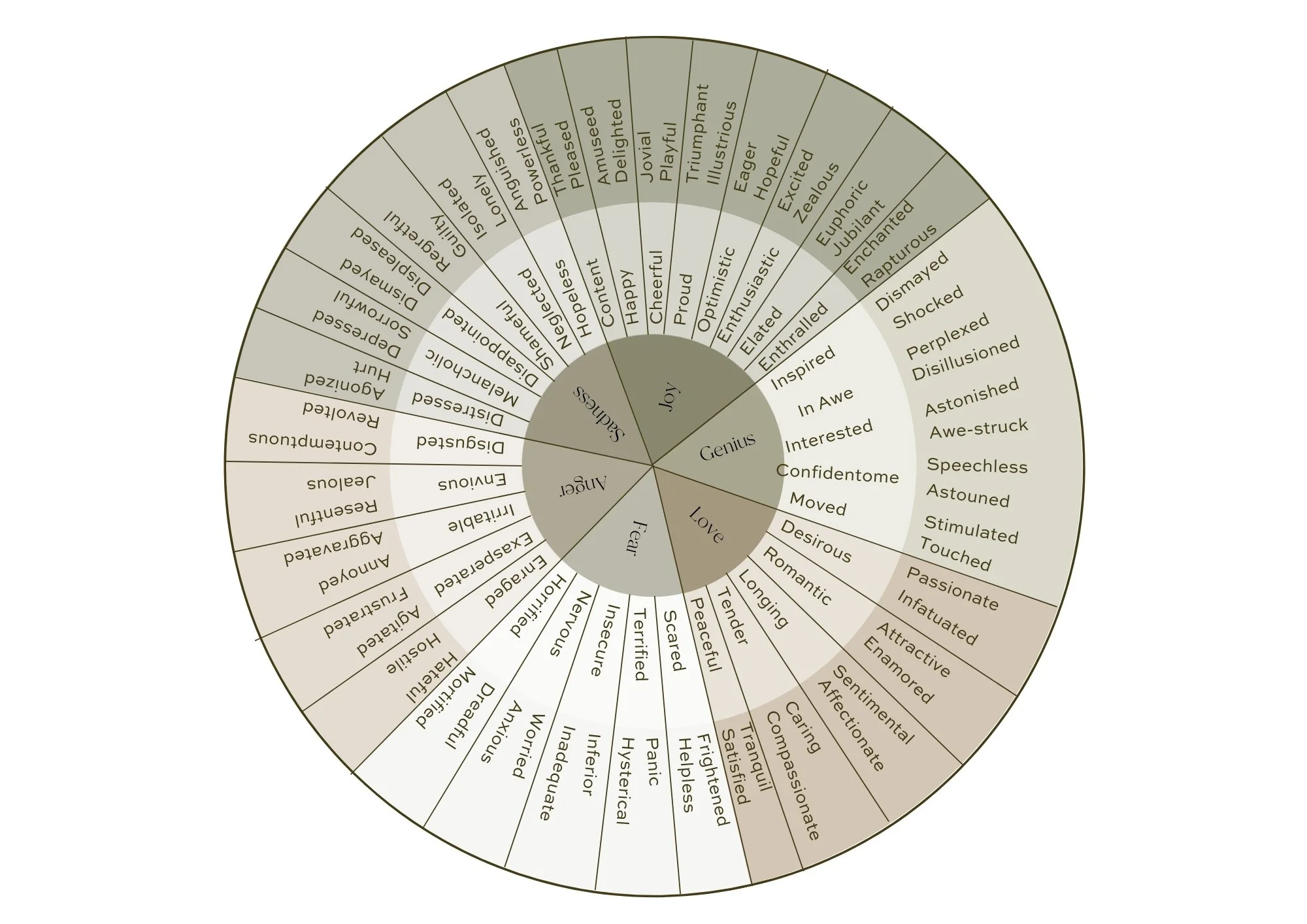Dealing with Uncertainty
November 1, 2024
Written By: Courtney Edwards, M.C, Provisional Registered PsychologistThink about the last time you tried to predict the future. That feeling of not knowing how things will turn out can gnaw at you, make you feel stuck, and lead you to question yourself. Uncertainty makes you try to find someone in the exact same situation to help you decide whether to stay in your current job or look for a new one, so you talk to everyone rather than making the decision. Uncertainty keeps you spending hours trying to come up with just the right words to tell your partner or your friend something difficult, so you delay a really important conversation. You might even feel more irritable and hypersensitive to criticism or danger, imagining every little thing as a potential disappointment.
Recently, I struggled for weeks in anticipation of my licensing exam. I pressured myself to stick to unsustainable study routines in an effort to control the outcome, exhausting myself in the process. The discomfort I felt from not knowing with certainty how things would work out led me to strategies that messed with my sleep, appetite, patience, and confidence.
Why do we react this way?
When worrying about the unknown, we have an adaptive response that tries to predict and prepare for the worst case and avoid discomfort. However, by focusing on worst-case scenarios, our bodies experience real stress, making us feel like the threat is happening now. This can drive us to either try changing the outcome or aggressively avoid the situation all together; both ways of coping with the very real discomfort we’re feeling.
Sound familiar? If these strategies aren’t providing relief from your worries, it might be time to try something new to cope with this discomfort. If uncertainty is causing distress, here are some strategies to help manage those feelings and find calm in the unknown.
Be Kind to Yourself
Self compassion improves tolerance of uncertainty by building your resilience. Increasing self-compassion can improve your emotional intelligence, coping skills, ability to tolerate uncertainty, and improve your overall well-being.
My favourite self compassion exercise recommended by Kristen Neff is to do some reflective journaling to capture what your inner critic is saying about you. Start with noticing and writing your critical inner thoughts. These thoughts may be judging you for being uncomfortable and bothered with uncertainty. It may sound like “why can’t I just relax” or “I shouldn’t be this anxious, what’s wrong with me.” Your inner critic might push you to do more to gain control of the situation, such as “If I just keep researching I can find a solution,” or “I should bail on this until I’m actually ready.”
Follow this with a new, compassionate voice, noticing how it feels to be criticized. This might sound like,“it makes me feel guilty and incompetent” and “my head aches and I feel so restless.”
Finally, let a third point of view - the observer - recognize how your critical voice is trying to help, and identify how to help without the criticism. This may sound like “It’s ok that I don’t feel comfortable right now and that I’ve tried to manage it in ways that don’t help me. Now I know I can try something else”.
Get Absorbed in Something Else
When dealing with uncertainty, time often feels like it’s moving slower because you’re anticipating the end-point. Doing something engaging to help us get into a bit of a “flow” helps us perceive time as going faster and reduces the distress of just waiting. This is often something that demands your attention without inducing stress - think activities like yoga, hiking, gardening, cooking, running, painting or crafting. Think of activities that bring you joy and allow you to lose yourself in the moment, as worrying won’t make time pass faster or change the outcome you’re waiting for.
Cope Ahead
As you prepare yourself for the end of this uncertainty, knowing you have a plan to deal with the outcome will reduce the discomfort. Do you anticipate getting overwhelmed with uncomfortable emotions like sadness, fear, or anger? You can follow these steps to cope in the moment if big emotions start to overwhelm you, process them when you’re ready, and problem solve with clarity.
If you need to get through a moment without getting overwhelmed or shutting down, try some paced breathing, splashing cold water on your face, popping a sour candy in your mouth, taking a walk, cuddling a pet, and letting yourself move through the intense part of the emotion. Have someone you trust ready to support you, and plan to comfort and soothe yourself in whatever way you like best (I like bubble baths and weighted blankets).
Once you have a safe space and time to process how you’re feeling, do a quick check in using a feeling-tracker app (I like How We Feel or the one in Apple Health) or look at a Feelings Wheel.
3. Now that you’ve identified what you’re feeling, spend a few moments really connecting to that feeling. Once you find a word or image that represents your feeling, close your eyes and take 3 deep breaths.
Notice the sensations you’re experiencing. Does the feeling or sensation have a temperature? Texture? Weight? What colour is it?Where in your body is that feeling sitting?
Any movement? Any swirling, churning, tingling? Stillness? Does your body want to move in response to that feeling? Sway or whatever to embody the emotion.
Like you’re watching a fish in a fish tank or clouds passing by, try just observing the feeling, without judging it or trying to change it.
If narratives and to-do lists come up, pull your thinking back to your sensations and those details about the location, temperature, weight, colour, or movement of the feeling.
Start by doing this in 30 second increments twice a day when you’re dealing with uncertainty. Build it up each day.
4. You can also take proactive steps to problem-solve. Often, we worry because we’re uncertain about how we’ll handle an outcome if things don’t go as planned. Try asking yourself what actions you could take if the outcome you’re hoping for doesn’t happen. For instance, if I didn’t pass my licensing exam, I could study content areas where I felt less confident, work with an exam coach for additional guidance, and retake the exam. Knowing you have a plan to handle disappointment or setbacks if they arise can help reduce uncertainty.
Call to Action
Take a moment to reflect on a recent experience of uncertainty. Ask yourself:
How much control did I truly have in that situation? Was it 25%, 50%, or 80%?
Did I try to control the outcome or avoid feeling discomfort? How did that approach work?
What strategies helped me cope? Who did I turn to for support?
How would I act if my choices weren’t driven by the outcome I’m worried about? What would I do differently?
Next time uncertainty arises, try this:
Notice its impact on you: Is it making you anxious, irritable, or affecting your sleep or appetite?
Identify what you can control and recognize the positive possibilities you may be overlooking.
Acknowledge your efforts: Remind yourself, “I’ve done my best with what I know now.”
Engage in something absorbing: Move, create, read, or enjoy a hobby to ease your mind.
Reach out to your support system: Who has helped before? Can you lean on them now?
Take Aways
While there's no way to avoid uncertainty, you can get better at recognizing it and taking steps to support yourself through it.
Notice when uncertainty is creeping in, and get curious about how it's affecting your mood and your actions.
Give yourself some grace and speak to yourself kindly.
Comfort yourself, speak to someone you trust, take some deep breaths, splash some cold water on your face and go get absorbed in something good!
I bet you’ll surprise yourself with how much strength you already have within - after all, you’ve gotten through times like this before.
References:
Linehan, M. (2024). Cope ahead skill. Dialectical Behavior Therapy (DBT) Tools. https://dbt.tools/emotional_regulation/cope-ahead.php
Neff, K (2024) Compassion practices. Self-Compassion. https://self-compassion.org/self-compassion-practices/#self-compassion-exercises.
Sweeny, Kate. (2012). Waiting Well: Tips for Navigating Painful Uncertainty. Social and Personality Psychology Compass. 6.10. https://www.katesweeny.com/uploads/2/6/9/4/26944848/sweeny_2012_sppc.pdf



